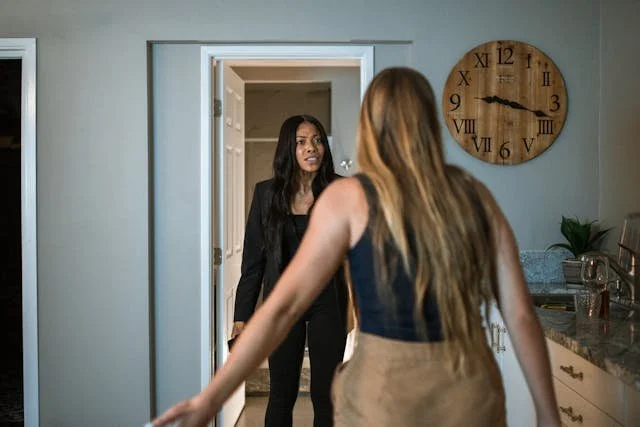Why You Keep Fighting and How to Finally Listen
Every couple fights. Arguments are a natural part of sharing a life together. But when fights keep repeating without resolution, partners begin to feel stuck in the same cycle: hurt, blame, defensiveness, and distance. Many couples wonder, “Why do we keep fighting about the same things?” or “Why do our arguments spiral so quickly?”
The answer often comes down to listening, or rather, the lack of it. True listening is more than waiting for your turn to speak. It is about creating space to understand your partner’s experience, even when you disagree. In marriage counseling, couples often discover that the secret to fighting less is not avoiding conflict but learning how to really hear one another.
Why Couples Keep Fighting
Surface Issues vs. Core Needs
Most recurring arguments are not about dishes, bills, or who forgot to call back a friend. These surface issues usually represent deeper needs: respect, appreciation, safety, or love. When those needs go unmet, small issues escalate.
Negative Communication Patterns
Couples often get locked into patterns: criticism and defensiveness, or attack and withdrawal. These cycles repeat because both partners are reacting rather than listening.
Emotional Flooding
When arguments escalate, emotions run so high that logical thinking shuts down. Partners stop listening and focus instead on protecting themselves.
Why Listening Is So Hard
Feeling Misunderstood
When you do not feel heard, your natural impulse is to talk louder, repeat yourself, or push harder. Ironically, this only makes your partner feel less heard.
Defensiveness
It is difficult to listen when you feel attacked. Defensiveness blocks curiosity and fuels conflict.
Distraction and Assumptions
Many couples enter arguments with assumptions about what the other person means, instead of staying present. Add in the distraction of phones or multitasking, and true listening becomes even harder.
How Marriage Counseling Helps Couples Listen
Marriage counseling provides tools for slowing down arguments and building listening skills that repair connection.
Learning to Pause
Therapists teach couples to recognize when they are flooded and to pause before reacting. This break allows emotions to settle so listening becomes possible.
Practicing Reflective Listening
In counseling, couples often practice repeating back what they heard before responding. This ensures understanding and signals care, even if there is disagreement.
Naming Core Needs
Therapy helps couples move beyond the surface argument and identify the deeper need. Instead of “You never do the dishes,” the real message might be, “I need to feel like we are a team.”
Reducing Defensiveness
A counselor guides partners in shifting from blame to vulnerability: “I feel overwhelmed when I do not have help” instead of “You never help.” Vulnerability invites listening, while blame shuts it down.
Practical Steps to Start Listening Better
Even without a therapist, couples can begin practicing skills that reduce fighting and increase listening:
1. Slow Down Your Response
Instead of reacting immediately, take a breath and ask yourself: “Am I listening to understand or just to respond?”
2. Use Curiosity
Replace judgment with curiosity. Try asking, “Can you tell me more about how you are feeling?”
3. Validate First, Problem-Solve Later
Validation does not mean agreement. It means saying, “I hear that you are stressed and it makes sense.” Only after validation should problem-solving begin.
4. Limit Distractions
Put away phones and multitasking during important conversations. Full attention is a powerful form of care.
5. Create “Listening Time”
Set aside a few minutes each day for undistracted sharing. Take turns listening without interrupting or offering solutions.
When to Seek Marriage Counseling
If fights are frequent, unresolved, or escalating, marriage counseling can provide the structure and support needed to shift the dynamic. Counseling offers a neutral space where couples can:
Break unhealthy patterns of communication
Learn practical tools for listening and validation
Address the deeper needs beneath recurring arguments
Rebuild trust, intimacy, and connection
Listening is not just a skill. It is a practice that grows stronger with guidance and support.
Final Thoughts
Couples fight because they do not feel heard, not because they disagree. The key to breaking the cycle is learning to truly listen with curiosity, validation, and care.
Marriage counseling provides the tools couples need to step out of conflict cycles and into deeper connection. By practicing new ways of listening, you and your partner can fight less, understand more, and create a relationship rooted in respect and love.

